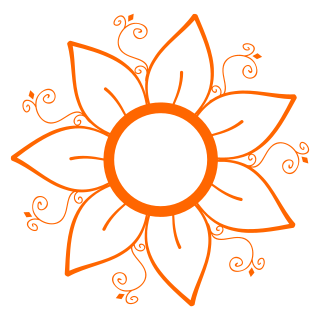What makes Yoga Yoga?

Discussing the defining characteristics of Yoga.
What is it that actually defines Yoga?
In the Yoga Sutras (I offer a very brief intro here), Patanjali jumps straight in at the beginning with a definition of Yoga, what happens when it is practised, and what happens when it is not practised.
I pick a few translations and then add my own thoughts:

Yoga Sutras : Chapter 1 : Verse 2
What is Yoga?
"Yoga is the settling of the mind into silence."
Alistair Shearer
"Complete mastery over the roaming tendencies of the mind is Yoga."
Pandit Rajmani Tigunait
"The restraint of the modifications of the mind-stuff is Yoga."
Swami Satchitananda
"Yoga is the containment of movement in the psyche."
Paul Harvey
So we can see that Yoga is a mental process and/or a mental state.
It is a process whereby the mind progressively comes to a clear/calm/contained/tamed/mastered state.
And it is that state of clear/calm/contained/tamed/mastered mind.
Yoga is both journey and destination.
Note that there is no mention of the physical postures.
Patanjali comes to those later (as will I in later articles :b ).

Yoga Sutras : Chapter 1 : Verse 3
And then ...
"When the mind is settled, we are established in our essential nature, which is unbounded consciousness."
Alistair Shearer
"Then the Seer becomes established in its essential nature."
Pandit Rajmani Tigunait
"Then the Seer [Self] abides in his own nature."
Swami Satchitananda
"Then the seer's own character remains."
Paul Harvey
Then our True Nature, our Deepest Self, is fully and completely present and established.
Our unlimited, glorious Divinity shines without distortion, blockage or hindrance.
Awareness/soul/purusha rests in its true form.
We become our True Self.

Yoga Sutras : Chapter 1 : Verse 4
Otherwise, where the mind is unsettled/unclear/un-mastered ...
"Our essential nature is usually overshadowed by the mind."
Alistair Shearer
"Elsewhere [the Seer] conforms to the roaming tendencies of the mind."
Pandit Rajmani Tigunait
"At other times [the Self appears to] assume the forms of the modifications."
Swami Satchitananda
"At other times there is identification with the movement [in the psyche]."
Paul Harvey
We mistakenly identify ourselves with the temporary, mind-based phenomena we call our body/thoughts/feelings.
We appear to take on the qualities of the mind/psyche.
Our understanding of, and thus our actions in, the world become distorted by our mis-perception and misunderstanding.
We become, and are governed by, our skewed and conditioned thinking.

Context
It is important to also appreciate the context in which Patanjali was working.
He does not directly mention the search for deeper truth as this would have been a given in a culture steeped in the Vedas (I give a brief overview of the Vedas here).
Anyone coming to learn the principles and techniques of Yoga at that time would have been a seeker, familiar with the Vedas, and would have taken this assumption for granted.
This is not the case today.
Many people come to Yoga (or simply perhaps that which calls itself 'Yoga' but lacks the criteria that actually make it Yoga) for reasons other than spiritual development.

Union
Another helpful way to explore this subject is to look at the meaning of the sanskrit word 'Yoga'.
The word comes from the root 'Yuj' meaning 'to yoke', 'to join', 'to unite'.
So a common definition/translation of the word is 'Union'.
From this we can appreciate that Yoga is the practice of union.
Union of what?
Yoga, and all Vedic philosophy, is founded on the basic premise that we are inseparably part of a unified whole but have come to mistakenly see ourselves as separate.
Yoga works by re-uniting our fractured, disconnected, false self with the whole.
Thus we become harmonious, coherent and balanced with laws of the universe and nature.
Again, this can refer to the process of becoming unified, and also to the desired goal - that of union/wholeness
Yoga is both means and end.

Conclusion
What makes Yoga Yoga is the active pursuit of deeper truths of ourselves, and of re-unification with the whole, via internal enquiry by quietening/calming/taming/mastering the mind.
If we are not working with the mind in order to progress spiritually we are not practising Yoga.


I find it very interesting that Yoga means union what correlates with etymology of religion (latin re+ligare = reconnect). So, although Yoga is not a religion, the goal of these two is the same - the union of human and divine nature.
Thank you @purelife,
That is a wonderful and enlightening observation.
I appreciate your contribution.
:)
Love & Peace & Freedom
This is great for beginners trying to figure out what is yoga , excellent intro upvoted.
Thanks @simonjay,
I'm glad to be of assistance.
Yoga practice is so much more productive with some solid foundational principles in place.
The Sutras are a fantastic and inspiring resource for this.
Love & Peace & Freedom